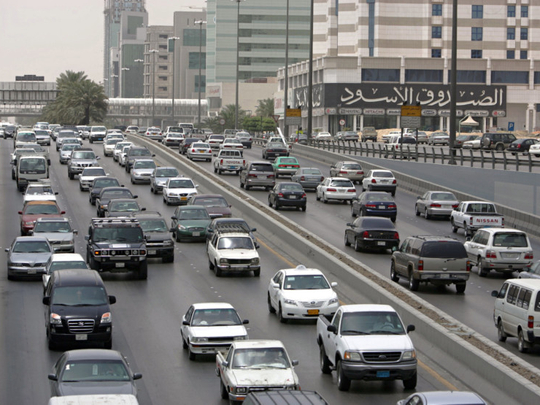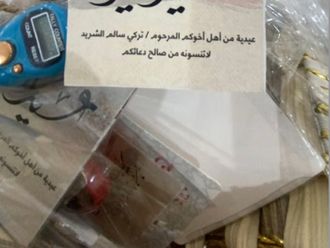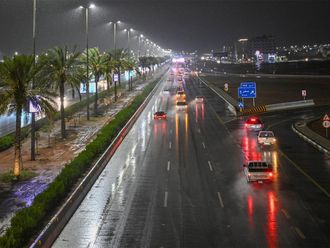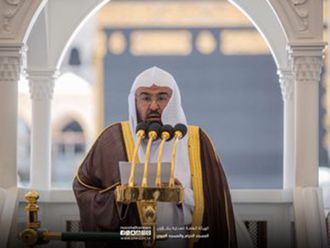
Manama: Saudi Arabia has formally banned the use of the mobile phone while driving, adding a new provision to the traffic law.
Under the ban, the use of the mobile phone poses a risk to public safety and can result in fines and even prison terms for the drivers who repeatedly fail to comply with the law.
“The purpose of the law is to limit the violations of the law that could cause accidents and undermine safety on the roads,” Brigadier Ali Al Rasheedi, the head of studies at the traffic department, said. “It is very crucial that drivers exercise the highest levels of caution and care and not be distracted in any way. The use of mobile phones while driving is a serious risk and can result in accidents,” he said, quoted by local daily Okaz on Sunday.
A car accident happens every second and 17 people are being killed in crashes every day on average in Saudi Arabia, statistics indicate.
According to the figures by the Saudi health ministry, 598,300 accidents occurred in 2012, an average of 1,614 a day and of 67 an hour.
The figures mark an increase of eight per cent over 2011 and 22 per cent over 2009.
In 2009, Saudi Arabia recorded 484,800 accidents, an average of 1,328 a day and 55 every hour. The figures went up in 2010 to reach 498,200 accidents with an average of 1,365 a day and 57 an hour.
In 2011, there was a nine per cent increase with 544,200 accidents and averages of 1,491 a day and 62 an hour.
Around 25 per cent of the accident-related deaths happened in the region of Makkah in the western part of the vast kingdom.
Makkah also tops the list in injuries with 27 per cent of the country’s sad tally. The capital Riyadh leads in the number of accidents with 28 per cent of the country’s traffic crashes.
Campaigns by the authorities to bring order to chaotic driving and boost a more positive traffic culture have often been resisted by unruly and speeding drivers.
A rigorous monitoring system with traffic cameras on highways to check speed and at the traffic lights in major cities to record red light jumping is being used to bring down the number of accidents.
Attempts by unruly drivers to beat the system by seeking religious edicts to ban it on the grounds that it was robbing them of their savings have all been rejected by religious scholars.
Several religious figures insisted that cheating the system was not allowed and that all fines had to be paid. In their attempt to avoid the traffic monitoring lenses, some drivers used ruses to conceal their car licence plates, making their identification impossible.
However, the traffic authorities have recently said that they were installing advanced technology cameras to recognise violators.
The locating plate recognition (LPR) system sensors are reportedly able to detect the numbers of the licence plates even when drivers tamper with them or cover them with paint or stickers to hide them.












